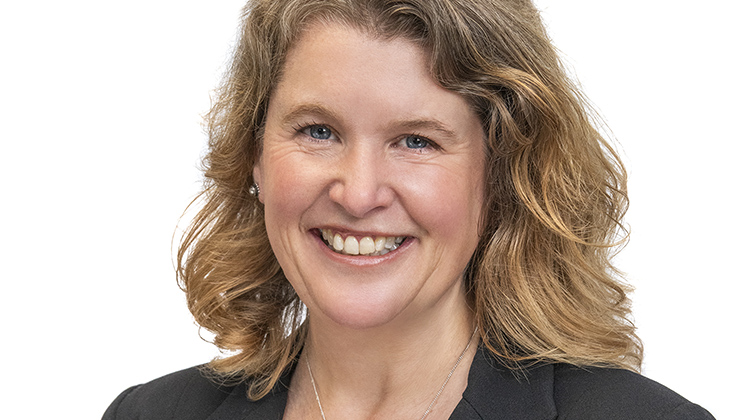Schools Plus Welcomes New CEO

The good work that Schools Plus has been doing funding impactful projects and addressing imbalances in education will continue under new CEO Sherrill Nixon.
Nixon is the second CEO since founding CEO Rosmary Conn. Prior to joining Schools Plus, Sherrill had a long career as a journalist and editor with Fairfax Media, Australian Associated Press and News Corp, across newsrooms in Sydney, Melbourne, Canberra and Adelaide.
Sherrill joined Schools Plus as its second employee in 2014, working with Rosemary and the other members of the senior leadership team to develop and drive Schools Plus’ strategy and successful school programs.
For the past eight years, she has led Schools Plus’ donor relations team to raise over $62 million in philanthropic support to help children and young people facing disadvantage thrive at school.
“Through my many years in the media and even my own experience, I’ve seen how having just a few opportunities and someone believing in you can open doors and change lives. I’ve seen how government works, and of course I’ve also learned a lot about good communications and story-telling. I would say these skills have really benefited me in building the relationships we have with our many valued supporters,” Nixon says.
“Schools Plus is only getting started. We have the potential to really make a difference for hundreds of thousands of children and young people who, through no fault of their own, don’t have access to the opportunities that will give them a head start in life.
“Through our work, I want us to keep growing philanthropic support for underserved schools and using it to build the capacity of teachers, school leaders and families so that every child has the opportunities they need to thrive. And in doing so, we will continue to learn what strategies work best to overcome the challenges in underserved communities - I will be doing my utmost to see us cement our place as Australia’s voice of underserved school communities and a leading authority on education equity.”
When it came time to consider what was next after journalism, Nixon says she knew she wanted to work in the for-purpose sector in a role that contributed to a more equitable world.
“I had always been passionate about social justice, spent time volunteering for a range of causes and my children had recently started school. It led me to reflect on the difference a great education and great teachers make to a child’s life – so when I saw an ad to join Schools Plus in its infancy, I jumped at it.
“Nine years later, I jumped at the chance to be CEO because I had learned a lot about the challenges some children face, knew how far our organisation had come to help address them, and how much more potential we still had to change children’s lives."
There is a lot of work to if the unevenness in Australian education is to be changed, much of that imbalance occurs along socioeconomic lines.
“The issue of educational disadvantage and the effect it has on children’s lives is complex and persistent. As reports over decades have highlighted, there is an unacceptable and growing link between low levels of educational achievement and disadvantage in Australia, particularly among students from low socio-economic and First Nations backgrounds. Throw in the current teacher shortage and the lagging effects of the pandemic, and we are a long way from education equity.
“On the positive side though, there are many generous individuals, foundations and businesses that want to help create the opportunities kids need most. And after nearly 10 years in which we’ve supported about 1500 schools, we’re learning more and more about the most effective strategies schools and teachers can use to overcome the barriers and help their students thrive. The magic happens as we feed those learnings back into our work with new schools and through our connections with government and education agencies to start to create change at a broader level,” Nixon says.
Decades of research have demonstrated that the best way a school can improve its students’ outcomes is to improve the quality of its teaching - making sure you have effective teachers using effective methods in each and every class.
“It’s one of the key themes we see when schools come to us for our support. So focusing on policy that lifts the quality of teaching practice is critical, through things like access to and time for professional development, collaboration with fellow teachers, observation experiences and the like.
"Another theme we see is the lack of access to allied health services in less-advantaged communities - psychologists, speech pathologists, occupational therapists and the like. These services are critically needed to address things like children’s wellbeing, oral language development and motor skills development. We have supported many schools to access such services and would like to see policy changes that make them more readily available."
Over the past nine years, Schools Plus has supported more than 1,500 schools in under-served communities across Australia.
“In recent years, we’ve worked especially hard to improve our evaluation framework so we can tell the great story of our impact on student outcomes. It’s time now to really draw on that expertise and data to launch into our next stage of growth.
“We have set an ambitious goal of supporting 150,000 children and young people a year by 2027. After seeing the success of a group of multi-year projects, we are inviting more schools to partner with us for three years - instead of just one - to really deepen the impact and sustainability of projects, as well as the learnings we can take from them."